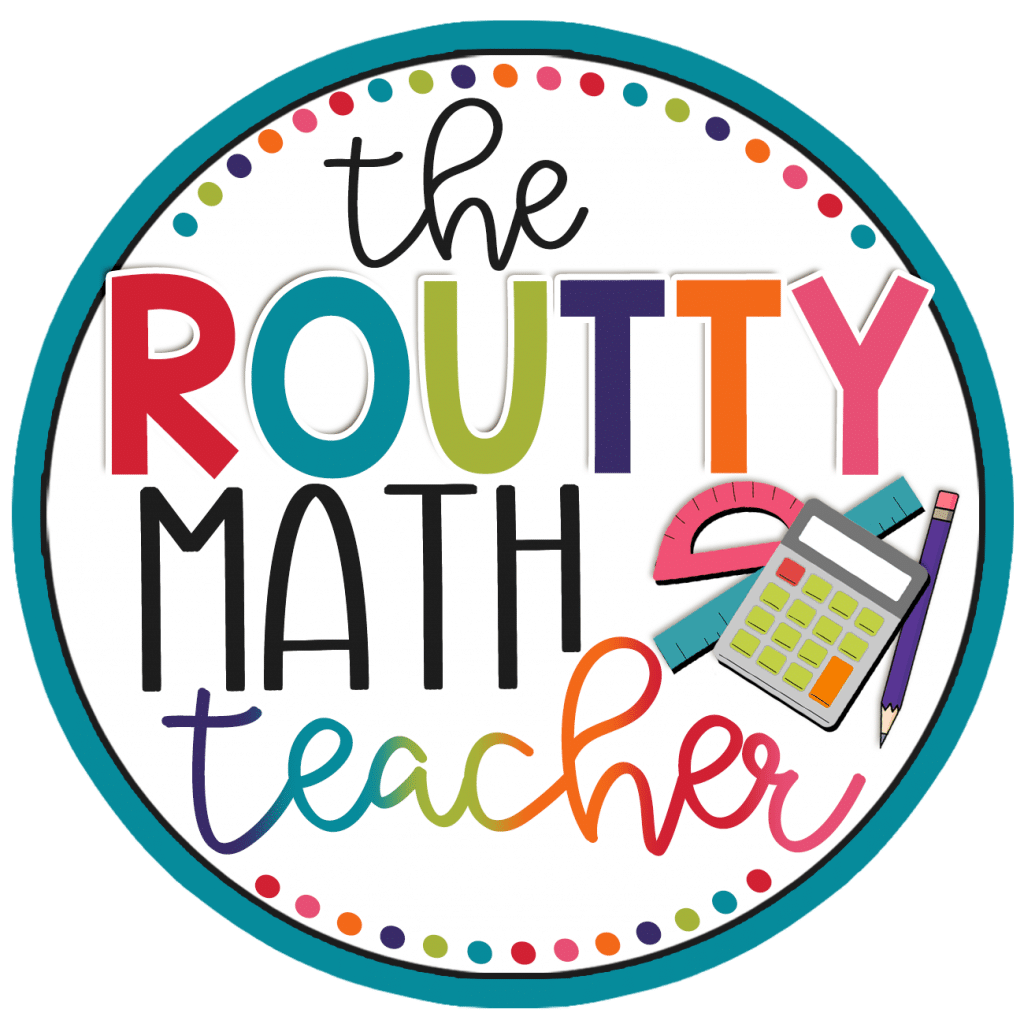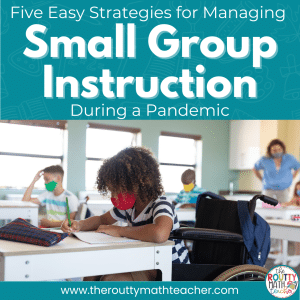
Math Games: 5 Common Pitfalls
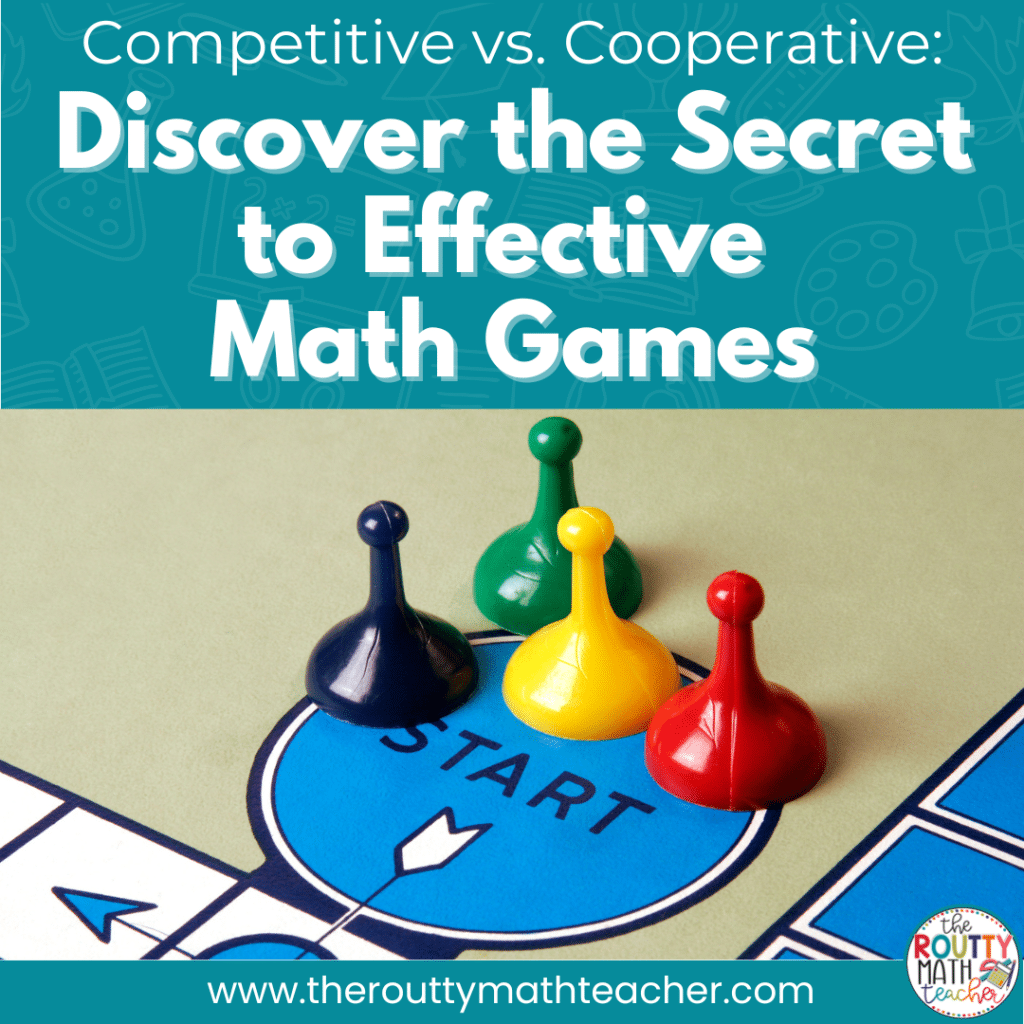
For students with anxiety, engaging in competitive games can intensify their emotional distress, heightening feelings of pressure, self-doubt, and unease. In this post, I discuss how competitive math games can impact student learning in surprising ways, explain why cooperative games are a better option, and share examples of cooperative partner games that can be used during math stations.
An intense math competition was underway– my students love playing Math Jeopardy!
The atmosphere was charged with anticipation as students crunched numbers and buzzed in when they were ready to answer, their eyes fixed on the coveted prize.
As the clock ticked down, the once-friendly camaraderie vanished, replaced by a cutthroat spirit that left no room for collaboration or empathy.
Little did I know, this seemingly harmless game was about to unravel a darker side . . .
Startled by the unexpected outcome, I began questioning the use of competitive math games in the classroom.
When Games Turn Sour
I know many teachers have experienced a time when what was supposed to be a friendly competition went awry.
Our goal is simply to create a fun way to review math content and skills, but the very games meant to enhance learning might be silently sabotaging it.
In this post, I delve into the unexpected effects of competitive math games on student learning, advocate for the benefits of cooperative games, and share ideas for engaging partner-based math games to use during math stations or whole group instruction.
Negative Impact of Competitive Math Games
Competitive games, while they may seem fun and engaging, can have negative impacts on upper elementary students.
Here are 5 ways in which competitive games can be detrimental to student learning:
- Increased Stress and Anxiety:
The pressure to win and outperform their peers can create a fear of failure for some students, hindering their ability to enjoy the learning process. In addition, when students compare themselves to others in a competitive environment, it can impact their self-esteem in a negative way. They may feel inadequate or inferior if they perceive themselves as less successful or skilled than their peers. - Limited Collaboration and Cooperation:
Competitive games, where the focus is on individual performance and beating others, often create a culture of rivalry and discourage collaboration. Students may develop a win-at-all-costs mentality, leading to negative behaviors such as taunting, teasing, or sabotaging others’ efforts. - Negative Impact on Learning Motivation:
The constant emphasis on winning in competitive games can shift the focus from learning and growth to the desire for immediate success. Students may become more focused on outcomes rather than the process of acquiring knowledge and skills. Additionally, fear of failure in competitive games can discourage students from taking risks and exploring creative solutions. They may opt for safer strategies or conform to conventional approaches rather than experimenting and thinking outside the box. - Reduced Inclusivity:
Competitive games can marginalize students who are less skilled or struggle with certain concepts. This pressure can also hinder their ability to think critically, solve problems, or engage actively in the learning process. This exclusionary dynamic can create a divide within the classroom, leading to feelings of inadequacy or jealousy. - Deteriorated Classroom Climate:
A classroom dominated by competitive games can create a tense and hostile environment. Instead of fostering a sense of community and support, it can breed hostility, animosity, and a lack of empathy among students. In addition, students may become more focused on defeating others rather than collaborating and supporting each other.
What are Cooperative Math Games
Cooperative games are interactive activities in which participants work together towards a shared goal rather than competing against each other. Unlike traditional competitive games, cooperative games encourage collaboration, communication, and teamwork.
By focusing on collective success rather than individual victory, these games foster a supportive learning environment where students can develop social skills and strengthen their mathematical understanding simultaneously.
Benefits of Cooperative Games:
Integrating cooperative games into your upper elementary math classroom can have a variety of benefits.
- Foster a positive and inclusive learning environment, where students support and learn from one another.
- Enhance critical thinking and problem-solving skills as students collaborate to tackle mathematical challenges.
- Promote communication and teamwork, helping students develop essential social and emotional skills.
Five Examples of Cooperative Partner Games and Activities
Here are five examples of cooperative games and activities that can be adapted to any math skill and used to promote collaboration and teamwork in the classroom.
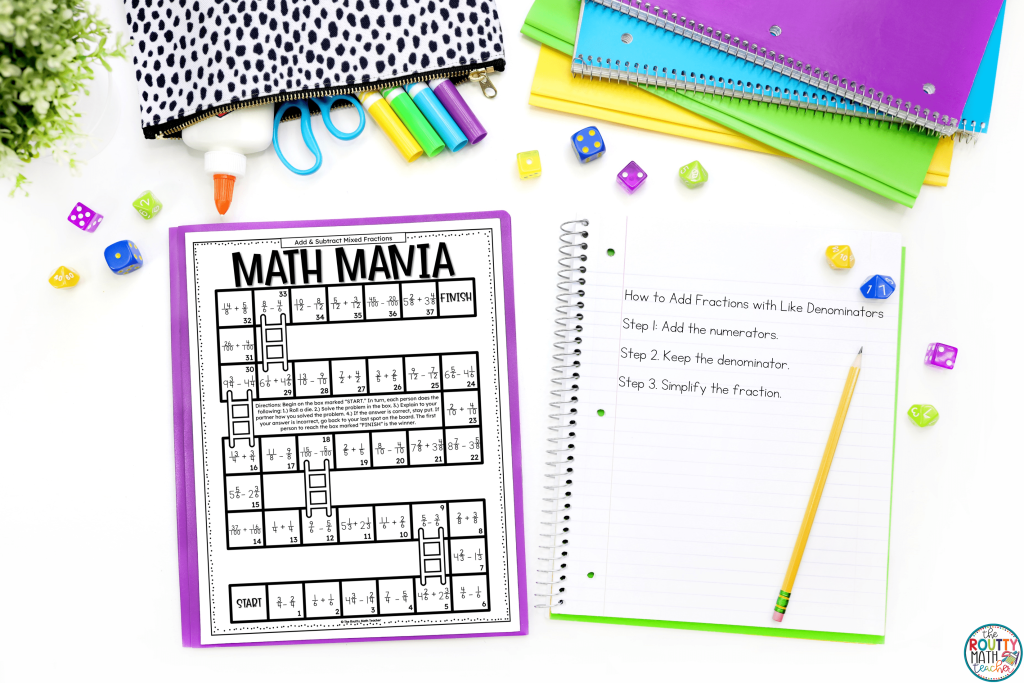
1. Board Game: Create a game board with a path divided into sections. Each section contains a math problem. Partners take turns rolling a die and moving their game piece accordingly. When landing on a section, students must solve each math problem together to proceed. The cooperative aspect comes into play as partners discuss strategies, check each other’s work, come to a consensus on the solution, and progress through the quest together.
2. Card Match: Create two sets of 12 playing cards, with math problems on one set and their solutions on the other set. Then students arrange each set of cards in an array and lay them facedown on a large table. Partners take turns flipping over two cards, one from each set, and attempting to match a problem with its corresponding solution. The cooperative element lies in partners discussing and justifying their matches, helping each other make connections, and checking each other’s work.
3. Math Dominoes: Create a set of dominoes with a math problem on one side and a solution on the other. Partners work together to solve the problems and fit the dominoes together to form an arrangement where each problem and corresponding answer are connected. While collaborating, students support each other by discussing and justifying their matches, sharing strategies to strengthen their understanding of different math skills or concepts, and checking each other’s work.
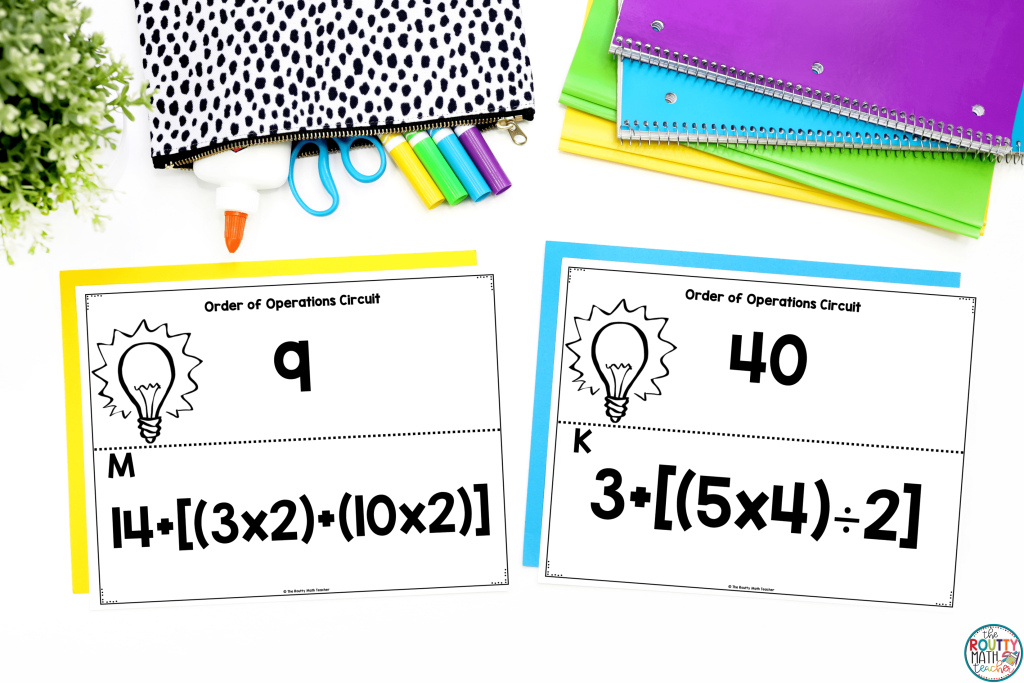
4. Scavenger Hunt: Design a math-themed scavenger hunt by creating a series of real-world math problems. Each problem should include the answer to another problem in a prominent location, such as the upper right-hand corner. Partners then work together to solve each problem, locate the card with the correct solution in the upper right-hand corner, and complete the next problem. The final card leads students back to their original starting place. This activity promotes collaboration as partners work together to solve the problems.
5. Challenge Task Cards: Create a deck of challenge task cards, each containing a math problem or scenario. Partners take turns drawing a card. Then, they solve the problem together. The challenges can involve a wide range of math skills, such as problem-solving, critical thinking, estimation, or logical reasoning. Working together, students can tackle challenges more effectively and learn from each other’s thinking and solution strategies.
Building Community with Cooperative Math Games
By incorporating cooperative games into your upper elementary math classroom, you can create a powerful platform for supporting social-emotional learning. These games go beyond teaching mathematical concepts and skills to help students develop essential life skills such as collaboration, communication, empathy, self-regulation, and positive problem-solving.
As you integrate the five cooperative math games and activities into your lessons, you’ll not only increase student engagement but also empower your students to become confident problem solvers and compassionate team players.
Embrace the impact cooperative games can have on your classroom, fostering a positive and inclusive learning environment where students can thrive both academically and socially.
Ready to Get Started?
Check out my editable math games and activities and read the next post in my cooperative math games series where I compare and contrast using cooperative games vs. competitive games in the classroom and share ways I transformed some of my favorite multiplication games into cooperative games.
Looking for more math station games? Click here for three of my favorites!
Sound Off!
How do you promote collaboration in your classroom?



